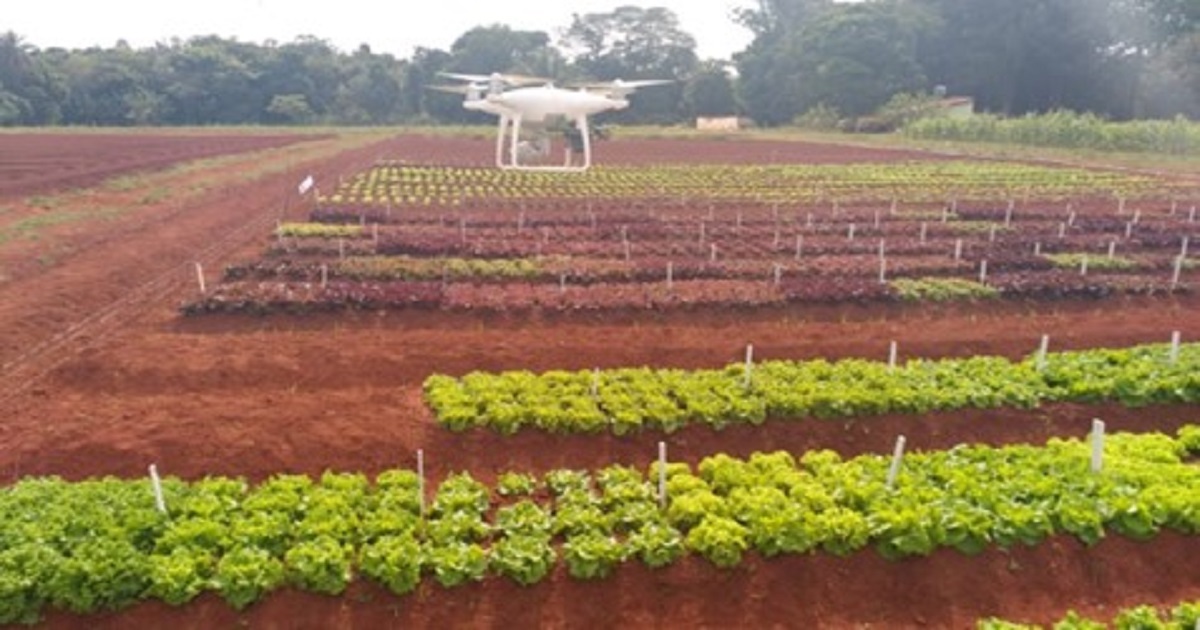Geographic Information Technologies in Agriculture and Environment
A special issue of Applied Sciences (ISSN 2076-3417). This special issue belongs to the section "Agricultural Science and Technology".
Deadline for manuscript submissions: 20 March 2026 | Viewed by 98

Special Issue Editors
Interests: UAV; digital photogrammetry; high-throughput phenotyping; artificial intelligence
Interests: agricultural microbiology; high-throughput phenotyping
Special Issues, Collections and Topics in MDPI journals
Special Issue Information
Dear Colleagues,
Geographic Information Technologies, including Geographic Information Systems (GISs), remote sensing, photogrammetry, Global Navigation Satellite Systems (GNSSs), and spatial analysis, have transformed the collection, visualization, and management of agricultural and environmental data. These technologies offer valuable tools for informed decision-making. In addition, they enable precision agriculture through real-time monitoring of crops, soil conditions, and water resources, which helps optimize productivity while minimizing environmental impact. High-resolution imagery from satellites and Unmanned Aerial Vehicles (UAVs) provides essential data for assessing vegetation health, monitoring deforestation, predicting droughts, and detecting changes in land use. This Special Issue aims to highlight innovative methodologies and case studies that leverage GISs, remote sensing, photogrammetry, GNSS, IoT, AI/ML, and spatial analytics to address critical challenges in sustainable agriculture and environmental management. We invite authors to submit original research manuscripts showcasing the latest developments in Geographic Information Technologies applied to agricultural and environmental sciences.
Topics of interest include, but are not limited to, the following:
- Crop monitoring, yield prediction, and soil health assessment using remote sensing, photogrammetry, and GISs;
- UAV/drone-based mapping and phenotyping;
- Variable-rate technology (VRT) and smart farming applications;
- Land use change detection;
- Climate change impact assessment and adaptation strategies;
- Biodiversity mapping and ecosystem service evaluation;
- Machine learning/AI for geospatial data processing;
- Big data and cloud computing in agriculture and environment;
- Hydrological and erosion modeling with GISs;
- Water resource and irrigation optimization;
- Agroforestry and precision conservation practices;
- IoT-integrated farm management.
Dr. Rodrigo Bezerra A. Gallis
Dr. Gilberto de Oliveira Mendes
Guest Editors
Manuscript Submission Information
Manuscripts should be submitted online at www.mdpi.com by registering and logging in to this website. Once you are registered, click here to go to the submission form. Manuscripts can be submitted until the deadline. All submissions that pass pre-check are peer-reviewed. Accepted papers will be published continuously in the journal (as soon as accepted) and will be listed together on the special issue website. Research articles, review articles as well as short communications are invited. For planned papers, a title and short abstract (about 100 words) can be sent to the Editorial Office for announcement on this website.
Submitted manuscripts should not have been published previously, nor be under consideration for publication elsewhere (except conference proceedings papers). All manuscripts are thoroughly refereed through a single-blind peer-review process. A guide for authors and other relevant information for submission of manuscripts is available on the Instructions for Authors page. Applied Sciences is an international peer-reviewed open access semimonthly journal published by MDPI.
Please visit the Instructions for Authors page before submitting a manuscript. The Article Processing Charge (APC) for publication in this open access journal is 2400 CHF (Swiss Francs). Submitted papers should be well formatted and use good English. Authors may use MDPI's English editing service prior to publication or during author revisions.
Keywords
- precision agriculture
- geographic information systems
- remote sensing and photogrammetry
- UAV technology
- high-throughput phenotyping
- sustainable land management
- environmental monitoring
- IoT
- machine learning
- big data in agriculture
Benefits of Publishing in a Special Issue
- Ease of navigation: Grouping papers by topic helps scholars navigate broad scope journals more efficiently.
- Greater discoverability: Special Issues support the reach and impact of scientific research. Articles in Special Issues are more discoverable and cited more frequently.
- Expansion of research network: Special Issues facilitate connections among authors, fostering scientific collaborations.
- External promotion: Articles in Special Issues are often promoted through the journal's social media, increasing their visibility.
- Reprint: MDPI Books provides the opportunity to republish successful Special Issues in book format, both online and in print.
Further information on MDPI's Special Issue policies can be found here.





